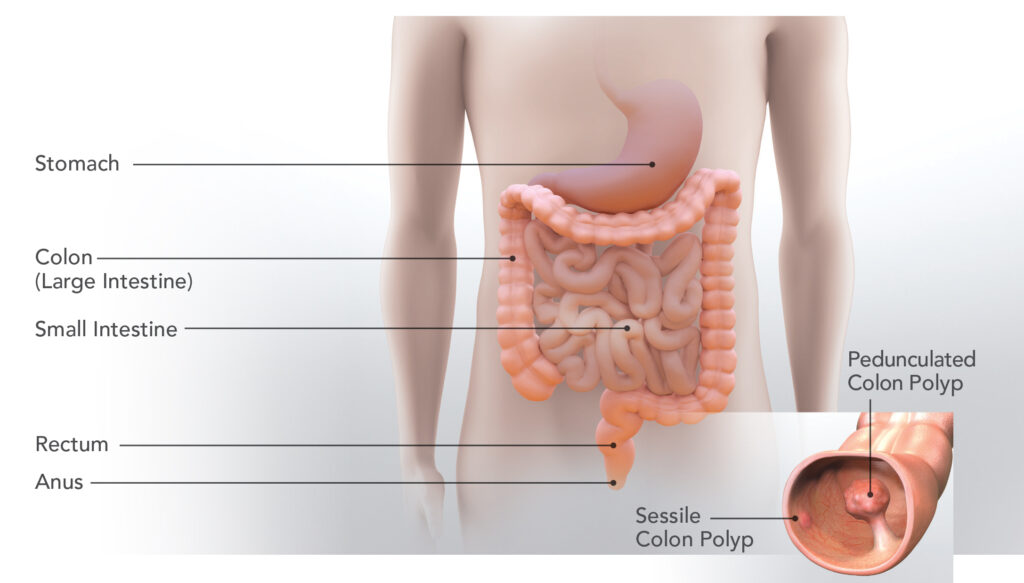What is Colorectal Cancer?
Colorectal cancer is cancer that occurs in the colon or rectum. Sometimes it is called colon cancer. The colon is the large intestine or large bowel. The rectum is the passageway that connects the colon to the anus.
Screening Saves Lives
If you’re 45 or older, getting a colorectal cancer screening test could save your life. Here’s how:
- Colorectal cancer usually starts from polyps in the colon or rectum. A polyp is a growth that shouldn’t be there.
- Over time, some polyps can turn to cancer.
- Screening tests also can find colorectal cancer early. When it is found early, the chance of being cured is good.


